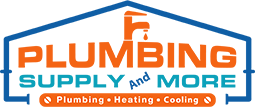Water Meters
Water meters are essential tools for accurately measuring and managing water usage. By tracking the volume of water passing through a pipe, these devices provide critical data for billing, monitoring consumption, and ensuring efficient use of this valuable resource. They typically utilize various technologies to measure water flow, offering reliable performance for residential, commercial, and industrial applications.
Key Benefits of Water Meters:
- Accurate Measurement: Ensures precise tracking of water consumption for fair billing and effective resource management.
- Efficiency: Helps identify leaks and inefficiencies by monitoring usage patterns, promoting water conservation.
- Cost Savings: Enables homeowners and businesses to manage water costs effectively by providing detailed usage data.
- Regulatory Compliance: Assists in adhering to local regulations and standards for water usage and billing.
Frequently Asked Questions About Water Meters
- What is a water meter, and how does it work to measure water usage?
- A water meter measures the volume of water that flows through a pipe by using various mechanisms to record water flow. Common types include meters with rotating impellers or mechanical chambers that accurately track the amount of water used. This measurement is crucial for accurate billing and monitoring of water consumption.
- What are the common types of water meters, and how do they differ in their accuracy and applications?
- Water meters come in several types, each with distinct features and suitable applications:
- Electromagnetic Meters: Use magnetic fields to measure water flow, offering high accuracy and suitability for various applications, including large-scale operations.
- Ultrasonic Meters: Utilize sound waves to measure water flow, providing accurate readings and being ideal for challenging environments where traditional meters might struggle.
- Positive Displacement Meters: Often used in residential settings, these meters measure the actual volume of water by trapping it in a chamber, making them reliable for accurate billing.
- How can I ensure accurate water meter readings and maintain the integrity of the system?
- To keep your water meter functioning correctly and ensuring accurate readings:
- Avoid Tampering: Do not alter or interfere with the meter, as this can affect its accuracy.
- Regular Maintenance: Schedule professional checks and maintenance to ensure the meter remains in good working condition.
- Protect from Damage: Ensure the meter is shielded from physical damage and adverse environmental conditions, such as freezing temperatures.
- Monitor Usage: Regularly review usage data to identify any anomalies that could indicate issues with the meter or leaks in the system.
Explore our range of high-quality water meters designed to meet diverse needs. Whether you're looking for precise electromagnetic meters, reliable ultrasonic options, or durable positive displacement models, we offer solutions that cater to various applications and ensure efficient water management. Browse our selection to find the ideal water meter for your requirements.

